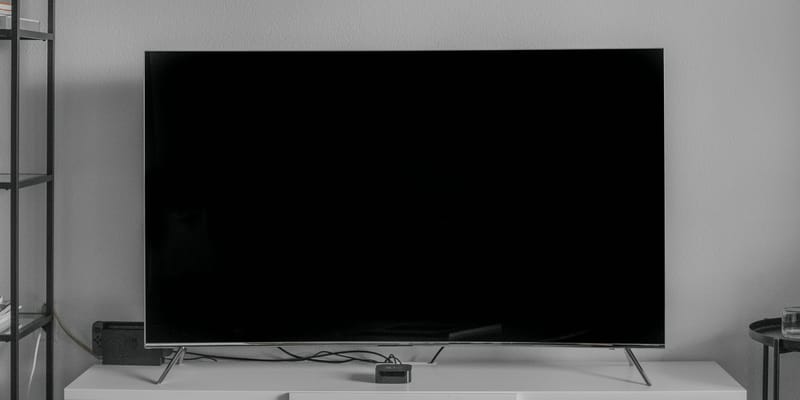In October, 2021, the Software Freedom Conservancy (SFC) announced a lawsuit against TV vendor Vizio for alleged violations of copyleft license requirements. The SFC claims Vizio “uses many different software programs that are copylefted in its TVs” — but has not fulfilled requirements that come with the use of copyleft-licensed code.
On the surface, this litigation might seem fairly unremarkable — after all, this is not the first time a company has been taken to court over an alleged failure to adhere to open source licensing requirements. But this lawsuit is quite different from previous cases related to open source compliance.
That’s because the SFC is not suing on behalf of a copyright holder of a particular open source component. Instead, they’ve lodged a claim as the consumer of Vizio’s products. The SFC argues that Vizio’s alleged failure to adhere to copyleft-licensing requirements denies rights that are guaranteed to downstream users.
Per the SFC, this is the first license compliance case where a consumer (as opposed to copyright holder) has filed suit. As such, if the SFC prevails in this case, we could enter a new world where copyright holders and consumers are entitled to enforce open source licenses.
To further put this case in perspective, we reached out to a leading expert: Kate Downing. Kate is an IP lawyer who specializes in helping software companies navigate areas like open source compliance.
"The number of open source licensing-related cases in the US has been rather small and they haven’t shed a lot of light on open source licenses and their scope or applicability beyond the most basic questions. If the court rules that consumers or users are third party beneficiaries to these copyleft licenses and are entitled to enforce them, this has the potential to dramatically increase the number of OSS-related lawsuits in the US, thereby very quickly setting new, possibly conflicting precedents related to OSS license interpretation throughout the country. We may be in for a tumultuous ride before this legal area gets fully developed and there is nationwide consensus on what constitutes OSS compliance."
May 2022 Update: SFC Gets Case Remanded
On May 13, 2022, the United States District Court for the Central District of California granted the SFC's motion to have the case remanded back to the Superior Court in Orange County. Vizio had previously filed a notice of removal (aiming to move the case from state to federal court) based on the argument that the federal Copyright Act pre-empted the SFC's breach-of-contract claim.
In deciding to remand the case, a federal court judge ruled that the GPL isn't just a copyright license — it's a contractual agreement. This means the SFC is free to continue with breach-of-contract litigation in state court. And, if the SFC prevails, its breach-of-contract claim could result in Vizio users (third-party beneficiaries) being empowered to enforce open source licenses — not just the affected open source software copyright holders.
Karen M. Sandler, the SFC's executive director, responded to the decision in a statement on the organization's website: “The ruling is a watershed moment in the history of copyleft licensing. This ruling shows that the GPL agreements function both as copyright licenses and as contractual agreements."
December 2023 Update: SFC Ruled to Have Standing
On December 29, 2023, the Superior Court in Orange County rejected Vizio's Motion for Summary Judgement, allowing the case to move forward. The court ultimately found that the SFC does have standing to try the case (which Vizio's motion disputed).
The next development to track relates to a motion from the SFC, which will aim to resolve another possible point of contention in the case: that distributing GPL-licensed code does, in fact, come with a duty to provide complete source code to software recipients.
As the SFC explained in a post on its website:
"Our motion seeks to establish that distributors of GPL'd software, such as Vizio, have a duty to the recipients of the software, such as purchasers of Vizio TV sets, to provide the source code for the software upon request. Unfortunately many companies completely ignore source code requests from consumers, or do not provide complete corresponding source, when the license sets out their obligations clearly."
We'll continue to monitor the case and update this blog following noteworthy new developments.
Editor's Note: This post was originally published in October, 2021. It was updated in May, 2022 following the SFC's successful motion to the have the case remanded back to the Superior Court in Orange County. It was then updated again in following the court's December, 2023 decision that the SFC does have standing to continue the case.
MORE: How to Choose an Open Source License Compliance Tool
Software Freedom Conservancy vs. Vizio: The Background
The Software Freedom Conservancy (SFC) is a nonprofit organization dedicated to supporting open source software projects. The SFC runs several major operations, including offering infrastructure and services for its member projects (which include ArogUML, Homebrew, and LibreHealth, among others) and several copyleft license compliance initiatives.
Vizio is a California-based TV and streaming system vendor with annual revenues north of $2 billion. The company’s streaming system is called SmartCast, and it’s part of all new Vizio TVs. SmartCast enables consumers to access multiple different streaming services (Netflix, Prime Video, Hulu, etc) along with hundreds of free channels. It also has Apple AirPlay 2 and Chromecast built-in.
SmartCast also happens to be at the center of the Software Freedom Conservancy’s litigation. The SFC alleges that “many of the programs” in SmartCast are based on open source programs covered by the GPL family of copyleft licenses. (The SFC’s lawsuit specifically highlights GPL v2 and LGPL.)
A key copyleft license requirement is that anyone who distributes a derivative work of a copyleft-licensed component must also make available the source code for said derivative work. However, per the SFC’s lawsuit, Vizio has declined to do so. The SFC alleges it first raised GPL compliance issues with Vizio in 2018, but that the TV vendor has refused to comply. (SFC also claims that while Vizio discontinued the original allegedly non-compliant TV model in July 2021, new models remain non-compliant.)
The SFC’s suit seeks to compel Vizio to comply with copyleft-licensing requirements, including the obligation to make available source code. The SFC is not requesting any monetary damages.
Why SFC vs. Vizio is Different
As mentioned, Software Freedom Conservancy vs. Vizio is far from the first lawsuit that seeks to enforce the GPL license. (See: Stockfish vs. Chessbase, among others.)
What separates this case from other GPL-related litigation is that it’s a breach of contract claim from a purported third-party beneficiary (SFC) — not a copyright infringement claim. In other words, the SFC is not filing suit on behalf of a copyright holder of a particular open source project, but instead as the consumer of a product with open source components. SFC’s media release on the matter reads in part:
"The rights assured by the GPL are actually not intended primarily for the original developers, but rather for people who purchase products that contain GPL’d software. That is what makes this litigation unique and historic in terms of defending consumer rights. It is the first case that focuses on the rights of individual consumers as third-party beneficiaries of the GPL."
That’s why the outcome of SFC vs. Vizio may have such significant implications. If it’s determined that consumers of a given product — not just copyright holders of the open source components used in that product — have standing to file suit, it could very well have a lasting impact on OSS license enforcement.
What Happens if the SFC Wins?
The fundamental question of whether consumers of a product have standing to sue for license violations may not be completely resolved any time soon. It’s possible that we’ll see multiple appeals spanning a number of years (not to mention different cases filed in different jurisdictions).
For the sake of discussion, however, let’s assume for a moment that the SFC will prevail, establishing precedent supporting a consumer’s right to file suit to enforce license terms.
There are a finite number of software copyright holders, and those individuals may not be motivated to pursue infringement litigation for any number of reasons. Consequently, there are currently a relatively small number of individuals who actually have standing to lodge such complaints. This is particularly true because most OSS copyright holders do not register their copyrights and therefore cannot bring copyright infringement cases against license violators.
If it’s determined that consumers also have standing to enforce license terms, that will lead to an exponential increase in the number of individuals who may file suit. As such, it would be reasonable to expect:
- An increase in the number of lawsuits seeking to enforce open source licenses
- More supply chain pressures on upstream technology providers to comply with OSS licenses, including pressure on individual OSS projects to have better licensing hygiene
- More lawsuits from one’s competitors and other entities that were not previously positioned to use OSS licenses offensively
- A greater emphasis on license compliance, including increased adoption of software composition analysis tools
Software Freedom Conservancy vs. Vizio: The Bottom Line
Although we may not have an answer to the question of consumer standing as it relates to enforcing open source license terms for some time, Software Freedom Conservancy vs. Vizio could ultimately change the way open source licenses are enforced.
And, regardless of the outcome, the case is an important reminder that license compliance should be part of every organization’s software development workflows. Although this might require additional tooling and create process changes, looking past the reputational, financial, and legal risks of non-compliance can have significant consequences.
Additional Resources
- Check out our blog Analyzing the Legal Implications of GitHub Copilot for answers to legal questions related to GitHub’s ML-based programming tool
- If your organization is looking for support with managing open source licensing obligations, FOSSA can help. Get in touch with our team for more information.
- For more information and to contact Kate Downing, you can visit her website.


